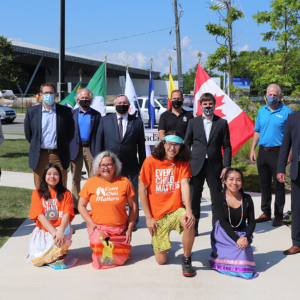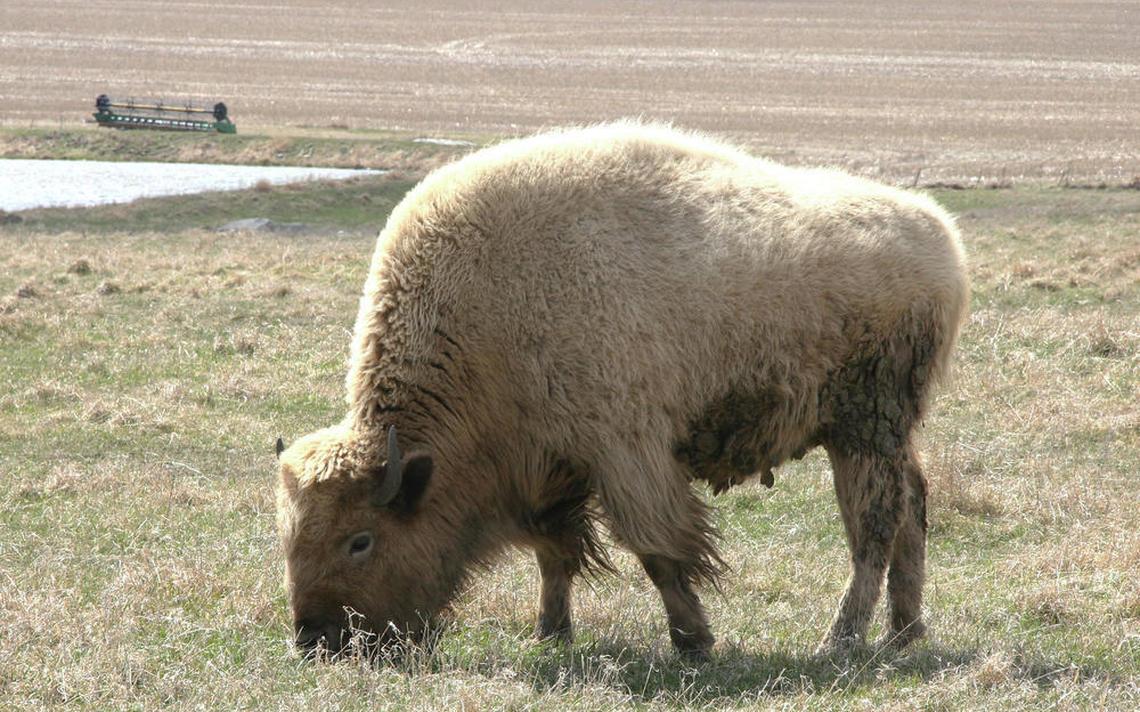The National Energy Board approved Enbridge’s reversal project in March, despite serious concerns about the pipeline’s ability to safely transport heavier oil products, and without proper consultation with many of the 18 First Nations along or near the route between Sarnia and Montreal.
In April of this year, the Chippewas of the Thames First Nation submitted an application to the Federal Court of Appeal to challenge the National Energy Board’s decision on Line 9B based on the Crown’s failure to respect the community’s Aboriginal and Treaty rights. Earlier this month the First Nation was granted leave on the application and decided to move forward with the legal challenge.
The appeal centers around the lack of consultation with the Chippewas of the Thames about potential impacts of the pipeline project on the community. Consultation and accommodation are mandatory under Section 35 of the Canadian Constitution as well as under the United Nations Declaration of the Rights of Indigenous Peoples, to which Canada is a signatory.
According to the “Not Worth the Risk Report”, a community report on the Line 9 National Energy Board (NEB) Hearings, there are several treaties and agreements that are being infringed upon by the Line 9 project, including: The Two Row Wampum, the Nanfan, and the Haldimand treaties, the Royal Proclamation, and the Simcoe Deed. These agreements require a process of free, prior, and informed consent from Indigenous nations whose communities would be impacted by a proposed project.
During the National Energy Board hearings in October, representatives of Aamjiwnaang First Nation, Mohawk Council of Kahnawà:ke, and Chippewas of the Thames First Nation gave presentations outlining the many ways in which the Line 9 project and its approval process violate Treaties. This information was ignored by the NEB.
Chippewas of the Thames First Nation is the first community to take legal action on Line 9. According to their press release on June 10th: “The basis of the appeal is that the Chippewas feel they were not properly consulted by the federal Crown with regards to the pipeline. The pipeline crosses the Thames River and it is the river that runs through the reserve, located near London, Ontario, and provides a source of drinking water to the First Nation.”
Concerns about the impact on water and land in the case of a pipeline rupture are widespread. A pipeline safety expert with over 40 years of experience in the energy sector, Richard Kuprewicz, told the National Energy Board that Line 9 is “90%” likely to rupture in the first five years of operation.
That’s because the pipeline is old and was built for regular oil, not the newly proposed substances – tar sands dilbit and fracked Bakken crude. Tar sands dilbit is more toxic and much heavier than regular oil. Likened to “liquid sand paper”, it must be transported at a higher temperature and pressure, making ruptures much more likely. Fracked crude from the Bakken region has been reported to be more corrosive and flammable than regular oil.
The Chippewas of the Thames First Nation’s Chief, Chief Joe Miskokomon stated in April: “The age of the pipeline is a concern because we know that this 40-year old pipe is subject to corrosion and heavy crude is going to be shipped through in higher volumes. We feel that this raises the possibility of new impacts beyond the right-of-way and we are concerned about our water resources and the environment.”
Line 9 crosses many other watersheds and ecologically sensitive areas such as the Grand River, the Niagara Escarpment, the Algonquin to Adirondacks Corridor, and the Rouge River. It passes rivers that drain into Lake Ontario which millions depend on for drinking water.
For Chippewas of the Thames, it seems the legal challenge is not just about its own reserve but about protecting the land and water, for everyone.
As Chief Miskokomon says: “First Nations are the only people that have legal standing to bring forward pipeline concerns on a constitutional law question. However, we know that there is a lot of public debate about oil pipelines because we are beginning to see that the old ways of doing business are no longer acceptable because of issues like global climate change and species extinction. Our elders have taught us that when we don’t respect Mother Earth our actions will come back to us.”
If Chippewas of the Thames is successful in its appeal, the case will send a strong message to industry operating in Ontario and to the federal government itself that the consultation process cannot be bypassed on any project that affects First Nations. The legal challenge also has the potential of preventing Line 9 from going online, which would benefit communities across the province. Additionally, it would cut off an export route for tar sands dilbit, thus helping to slow down tar sands expansion in Northern Alberta where Indigenous communities are being poisoned by toxic operations.
“We need the public and First Nations across this country to see this appeal as an opportunity to lend their support to Chippewa, and to strongly encourage government and industry to pursue alternative approaches on how natural resources are developed to benefit the seventh generation,” concluded Chief Miskokomon.







